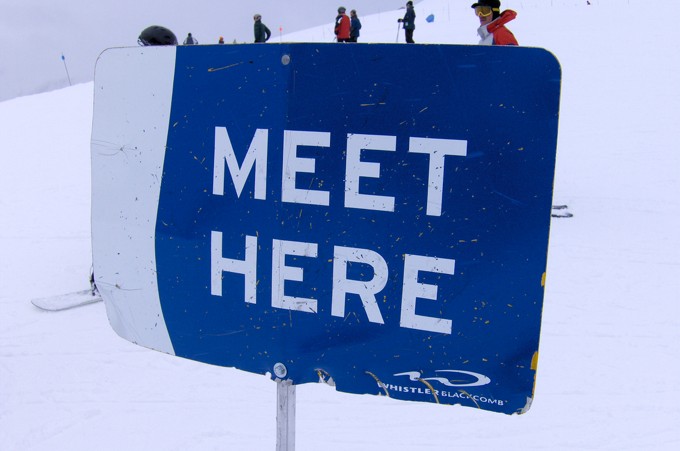Checklist For Successful Event Marketing
- Posted in:
- Essential Tips
- Guest Posts
 Market share and mindshare: A successful event can bring heaps of both kinds of attention to your business. The key is to plan it so that your execution is flawless. That's where the practical concerns such as insurance, safety, security, and logistics come into play. Many decide to hire an event planner once the scale of even a "small" event is understood.
Market share and mindshare: A successful event can bring heaps of both kinds of attention to your business. The key is to plan it so that your execution is flawless. That's where the practical concerns such as insurance, safety, security, and logistics come into play. Many decide to hire an event planner once the scale of even a "small" event is understood.
This article focuses on getting the most marketing mileage possible. Let's look at three crucial time periods that can affect how the marketing is received: prior to the event, during the event, and after the event.
Prior to the Event
Major planning starts here. What will the event say about your company, service, or products? What is the desired mood you want to achieve? What will attendees learn, or what other benefits will they receive from attending? This is the time to craft the strong message that will be repeated throughout the event.
[ ] Comprehensive marketing plan
Direct mail, website, radio spots, TV, newspaper ads, film and photography, and other methods should be part of the planning process depending on the audience you want to reach.
[ ] Logo, colors, and style guide
Events with strong visual branding throughout the experience tend to be more memorable and feel more cohesive.
[ ] Press kits -- paper and digital
Plan to notify local and/or regional media prior to the event for the best hope of earned media. At minimum, you'll need a press release with photos, bios, and information packets ready to distribute.
[ ] Social media marketing plan
Word-of-mouth is still the cheapest and most effective marketing method; social media should be the centerpiece.
[ ] Pre-show emails
Whether a part of your existing newsletter or as stand-alone promotion, emails are an important way to build buzz.
[ ] PPC, SEO, and online advertising
Target keywords and phrases for advertising leading up to your event.
[ ] Create the agenda packet
This document is a potent sales tool to get attendees. Highlight the benefits of attending and the proposed schedule of events. There should be at least two versions, one electronic and one printed for the event itself.
[ ] Show giveaways
Order the giveaways you'll use during the show to encourage participation.
During the Event
Every part of the event contains a marketing possibility. A strong, consistent message should be seen and felt from start to finish. Plan activities that support this overall message and be sure that all materials designed for attendees to take with them also conveys your theme.
[ ] Creative materials at the venue
Consider distributing packets of information in a suitable format. This may include novelty tchotchkes or branded everyday items. It may mean digital materials, such as free apps or games.
[ ] Visuals at the venue
Marketing potentials include all signage, posters, banners, balloons, boards, name badges, tent cards, plaques, etc.
[ ] Filming and photography
Events are goldmines for marketing materials. Be ready with a professional photographer or videographer. Hire a pro to ensure quality images and good lighting setup.
[ ] Social media "live streaming," "live tweeting," or similar
Have a dedicated group of people creating social media updates for Facebook, Twitter, and other social sites to maximize and capture the real-time experience.
[ ] Collect testimonials
Video is the ideal way to collect testimonials since you can reuse this later (be sure to have attendees sign a release). Soliciting written feedback and photos also work well.
After the Event
Immediately after the event is a time to collect feedback, materials, and measurements. All of these data points can be processed for improvement in the future or used in upcoming marketing materials. Organize the post-event media and other information as diligently as you planned it for best results.
[ ] Measure and report on social media outreach
Use a site like Hashtracking.com to measure discussion reach.
[ ] Collect links to social media updates
You will be able to point to these again later since most will stay online for a long time.
[ ] Archive the event on your website or post again to social media
This archive can provide valuable social proof for future events.
[ ] Collect and organize feedback
Attendee testimonials can be organized for future use, as can post-event survey responses. Look through feedback for verbiage useful for marketing future events. Be sure to get permission for attribution.
For more detailed steps check out The Definitive Guide to Event Marketing produced by Marketo. It is a free download with email registration.
Featured images:
 License: Creative Commons image source
License: Creative Commons image source
Katie McCaskey is a freelance journalist who covers event marketing tips and trends for Vistaprint, a leading source for address labels, invitations, and other products to help you market your next event successfully. Katie has written about marketing for 12 years and is co-owner of a neighborhood grocery/cafe outside of Washington, D.C.
